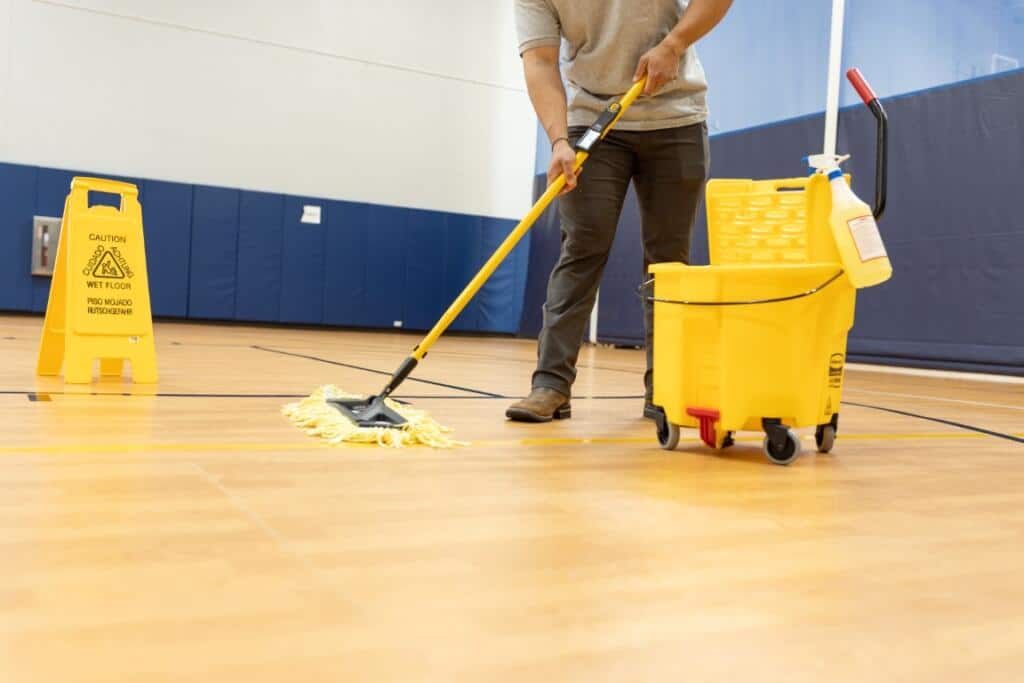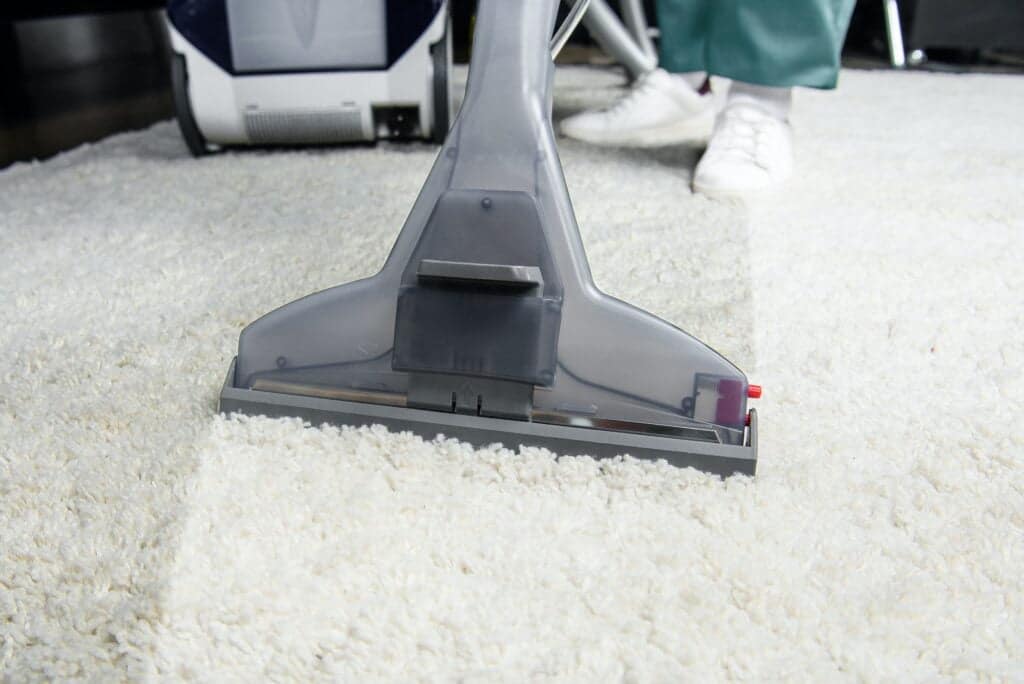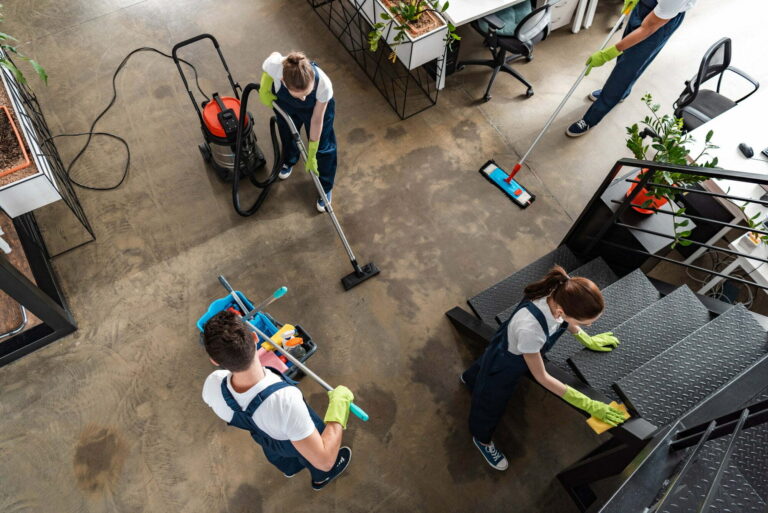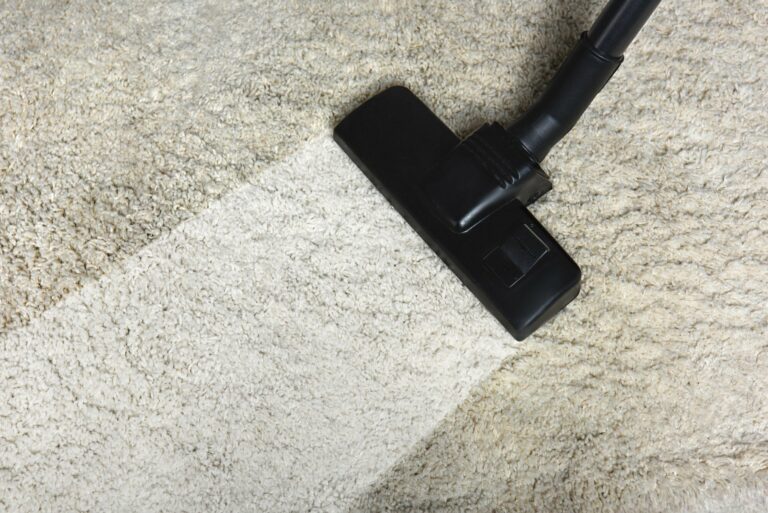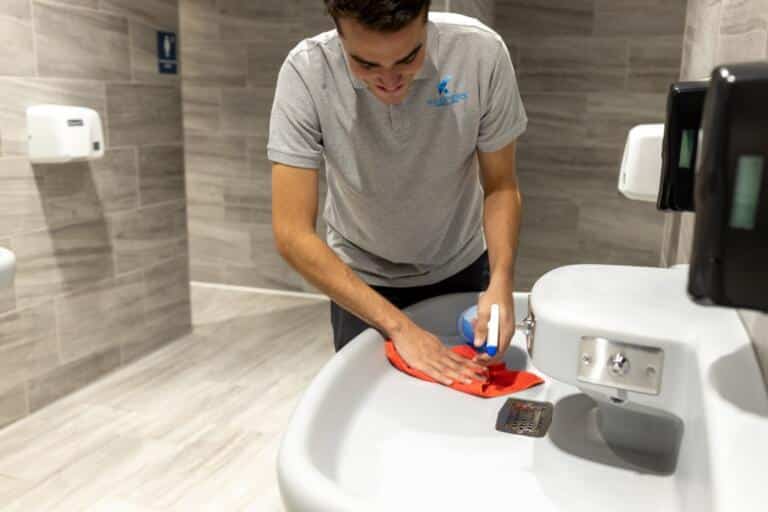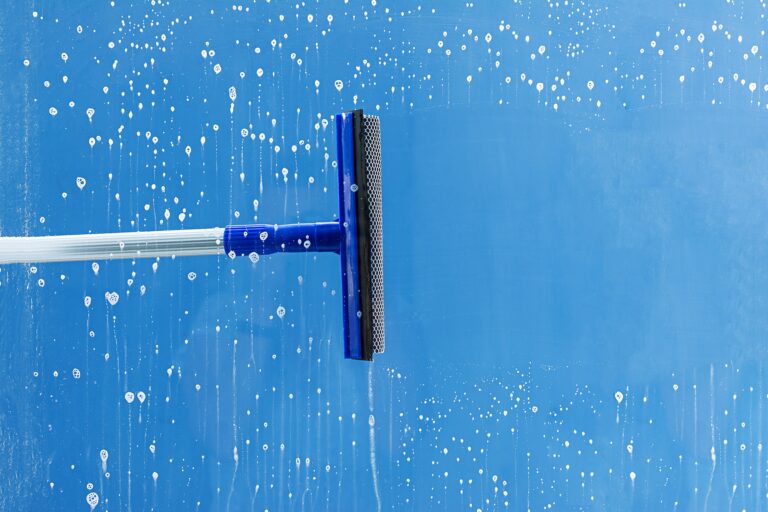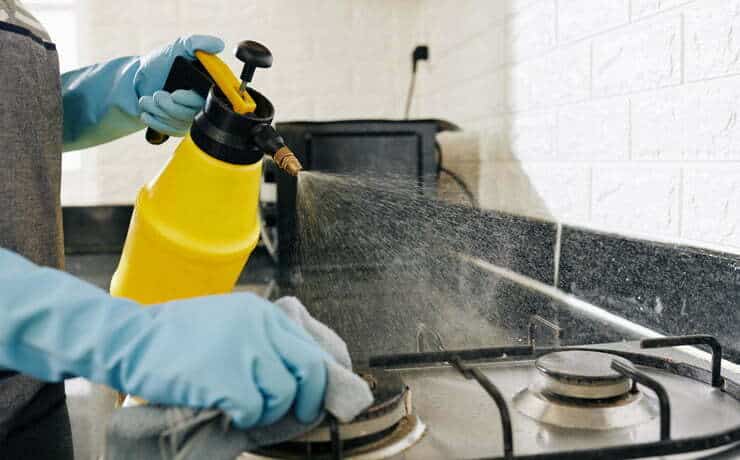The Dawn of a Green Era: Introducing Eco-Friendly Cleaning Products
In the arena of conscious consumption, eco-friendly cleaning products undeniably hold a significant place. But what exactly are they?
In essence, eco-friendly cleaning products are alternatives to conventional cleaning agents, meticulously formulated to reduce their negative impact on the environment and improve health conditions at homes and workplaces. They generally eschew harsh chemical compositions in favor of naturally-derived, biodegradable elements that are less damaging to water sources and terrestrial ecosystems when discarded.
Not only do these green products consider their footprint during usage but also lay emphasis on sustainable packaging solutions. Moreover, an ideal eco-friendly cleaning product should be devoid of phosphates, chlorine, artificial fragrances and colors – compounds typically found in traditional cleaners that contribute to environmental degradation.
Instead, they rely on ingredients like enzymes and plant-based surfactants which provide effective cleansing without wreaking havoc on Mother Nature’s delicate balance. These thoughtfully crafted items present a new approach towards hygiene; one that respects the symbiotic relationship between humans and the environment by striving for cleanliness that isn’t achieved at the expense of ecological welfare.
A Green Genesis: Tracing Back The Roots
The advent of eco-friendly cleaning products is not a recent phenomenon; rather it can be traced back several decades as part of humanity’s ever-evolving effort towards sustainable living. The 1960s marked the genesis of this movement as an uprising against harmful chemical-based household items burgeoned. This era bore witness to increasing awareness about both personal health and environmental concerns linked with mainstream cleaning supplies.
This consciousness gave birth to humble DIY solutions concocted from pantry staples like vinegar, baking soda, or lemon – largely prevalent even today for their efficacy and affordability. It wasn’t until the 1970s-80s though when companies began commercializing ‘green’ cleaning agents.
Initial offerings were limited in range but set crucial groundwork for more sophisticated versions seen today. The turn of millennium really amplified this shift as global warming became an indisputable reality forcing industries across all sectors including household care to reconsider their ecological footprint leading to further advancements and wider acceptance for eco-friendly alternatives.
Cleaning For A Cause: Why Eco-Friendly Cleaning Matters Now More Than Ever
As we navigate through an epoch marred by environmental crises – from climate change-induced weather extremities disrupting lives globally or microplastic pollution menacing marine ecosystems – it becomes downright imperative that we reevaluate mundane aspects such as our choice in housecleaning gear. Eco-friendly cleaning products offer us a chance not only to limit harm but also contribute towards healing our world one bottle at a time . They embody an essential step towards breaking free from toxic cycles perpetuated by regular cleaners thus paving way for healthier homes , offices , schools , hospitals – essentially every space we inhabit or visit .
Furthermore , these green warriors underscore societal transformation wherein consumers are becoming increasingly discerning about products’ origins , compositions , impacts upon usage & disposal . Henceforth , embracing eco-conscious options like green cleaners signify progressive consumerism where purchases aren’t just transactions but thoughtful decisions bearing implications beyond momentary satisfaction ; extending into realms such as public health & planetary wellbeing , thereby making them relevant players in contemporary society’s quest for sustainability .
The Hidden Cost: The Environmental Impact of Traditional Cleaning Products
Chemical Composition and its Effects on the Environment
Traditional cleaning products are notorious for their complex chemical composition. Harsh substances such as ammonia, phosphates, chlorine, and synthetic fragrances are just a few components commonly found in these products.
These chemicals not only possess immediate toxicity but also have long-lasting detrimental effects on the environment. When washed down drains or discarded improperly, these substances often find their way into our natural water systems.
They can cause severe damage to aquatic life by disrupting reproductive cycles, causing abnormal growth and even leading to death in extreme cases. Additionally, these chemicals can also leech into the soil affecting plant life and ultimately the health of entire ecosystems.
Moreover, the manufacturing processes involved in creating these harsh chemicals contribute significantly to air pollution. Greenhouse gases released during production further exacerbate climate change concerns.
The Weight of Waste: Non-Biodegradable Packaging Issues
Another significant environmental challenge associated with traditional cleaning products is non-biodegradable packaging waste. Plastic bottles and containers have become the standard packaging for most cleaning supplies due to their durability and cost-effectiveness. However, this convenience comes at a great environmental cost.
Non-biodegradable plastic waste has rapidly filled our landfills contributing excessively to soil pollution over time while also releasing harmful toxins when incinerated. The issue is compounded by low recycling rates globally, resulting in a vast majority of plastic waste ending up either in landfills or littering natural environments such as oceans where it poses substantial threats to marine life.
Murky Waters: Water Pollution Caused by Traditional Cleaning Products
Upon use or disposal of traditional cleaning products, we often wash them down drains without giving much thought about where they ultimately end up – our waterways. This inadvertent practice has led to significant water pollution problems across the globe.
These chemicals not only threaten aquatic wildlife but can also contaminate drinking water sources leading to potential health risks for humans who consume this contaminated water unknowingly. The situation is further worsened due to difficulties faced during wastewater treatment processes.
Many potent chemicals from household cleaners are resistant to conventional treatments resulting in them bypassing filtration systems and entering rivers or oceans directly causing irreversible damage over time. This insight into the far-reaching impact of conventional cleaning agents underlines a critical imperative – we need better alternatives that offer effective cleanliness without compromising our planet’s wellbeing.
The Benefits of Eco-Friendly Cleaning Products
Positive Environmental Impact
Biodegradable Components
Eco-friendly cleaning products, also referred to as green cleaners, often boast of a composition primarily constituting biodegradable ingredients. Unlike their conventional counterparts that are laden with harsh chemicals, eco-friendly cleaners decompose naturally without leaving behind harmful residues. This means they do not contaminate the soil or water bodies when disposed of, maintaining the integrity of ecosystems.
Lower Water Pollution Levels
Traditional cleaning products significantly contribute to water pollution. Their chemical constituents do not break down efficiently in water treatment plants leading to residual contamination of our rivers and oceans.
On the contrary, eco-friendly cleaning products are designed to be benign towards our aqua systems. They are devoid of phosphates and other harmful ingredients that cause eutrophication – a process that suffocates aquatic life due to excessive nutrient enrichment.
Reduced Waste due to Recyclable Packaging
Notably, manufacturers committed to producing eco-friendly cleaning items demonstrate their environmental consciousness by adopting sustainable packaging practices. Most package these goods in recyclable containers thus reducing waste sent to landfills. This initiative contributes significantly towards curbing the global waste menace while conserving natural resources used in making new packages.
Health Benefits
Reduced Risk of Allergies and Skin Irritations
Conventional cleaning agents are notorious for causing allergies and skin irritations due to their harsh chemical compositions. People with sensitive skin or respiratory issues often find themselves at odds with such products. However, eco-friendly cleaners are produced using mild ingredients sourced from nature making them less likely to trigger allergic reactions or cause skin irritations.
Lower Toxicity for Children and Pets
The home should be a haven for all its occupants including children and pets; however, traditional cleaning supplies can pose significant health risks owing their high toxicity levels. Eco-friendly cleaning tools champion low-toxicity formulations hence offering a safer alternative for homes with small children or pets who may come into contact with residue left after cleaning.
Improved Indoor Air Quality
Many are oblivious of the fact that indoor air pollution can be worse than outdoor air pollution – largely attributable to volatile organic compounds (VOCs) emanating from conventional cleaners . Using eco-friendly ones drastically reduces exposure levels as they lack VOCs thus enhancing indoor air quality.
Economic Advantages
Long-term Cost-effectiveness
While green cleaners may seem pricier upfront compared to traditional alternatives, they provide long-term cost benefits as they tend not only last longer but also reduce potential health-related costs associated with exposure to harmful chemicals found in conventional cleansers.
Governement Incentives for Green Businesses
Governments globally have acknowledged the immense benefits attached to using eco-friendly products inviting various incentives aimed at promoting green businesses including tax rebates among others. This fosters an economical environment conducive not only corporate growth but also individual savings on purchase taxes linked with these green products.
Market Trends Favoring Eco-Friendly Products
With an increasing global shift towards sustainability, consumers are demonstrating preference for environmentally friendly goods translating into heightened market demand for such items including green cleaners – a trend which economists predict is going upwards hence further solidifying economic viability tied down these earth-loving gems.
Case Studies: Success Stories with Eco-Friendly Cleaning Products
A New Era in Residential Cleaning
The rise of eco-friendly cleaning products has changed the domestic cleaning front significantly. One example is the Smith family from Portland, Oregon, who started using green cleaning products a year ago.
Previously, they suffered frequent allergic reactions and skin irritations due to harsh chemicals in conventional cleaners. Since the switch, their health issues have remarkably improved.
Furthermore, they noticed a decrease in indoor air pollution levels and found that these new formulas were just as effective for cleaning purposes. In another instance, a Miami-based couple running an Airbnb switched entirely to environmentally friendly products for their rental property.
They report regular positive feedback from guests appreciating their thoughtful and responsible approach towards cleaning practices. Not only did this enhance their reputation as hosts but also resulted in substantial cost savings by reducing water usage and waste production.
Redefining Commercial Cleaning Standards
On a larger scale, commercial entities are increasingly recognizing the advantages of eco-friendly cleaning products over traditional ones. One such entity is Green Works Facility Management Company based in San Francisco that adopted green cleaning solutions for its clients’ facilities about five years ago. Green Works has since reported improvement in customer satisfaction owing to cleaner spaces with less abrasive smells while maintaining high standards of hygiene.
Further North, a Toronto-based hospital replaced its conventional disinfectants with biodegradable alternatives over two years ago after conducting an extensive environmental impact study on its premises. This change led to improvements in indoor air quality while simultaneously reducing harmful waste disposal into local waterways thus positively impacting both health parameters and environmental footprint.
Insights from Industry Experts
Green chemistry experts believe this shift towards eco-friendly alternatives represents not only a trend but also an inevitable future path given rising environmental concerns worldwide. Dr Jane Goodall – renowned ecologist – emphasizes how small changes like switching to sustainable cleaning methods can collectively make significant positive impacts on our planet’s health and biodiversity preservation efforts.
Likewise, Tom Szaky – CEO of TerraCycle – highlights how enforcing circular economy models can help companies move towards zero-waste goals by utilizing packaging made from recycled or compostable materials thereby reducing landfill contribution significantly. Both anecdotal evidence from users at home or commercial facilities combined with expert opinion converge towards asserting that eco-friendly cleaning products deliver tangible benefits without compromising on effectiveness thus redefining modern day hygiene practices.
Transitioning to Eco-Friendly Cleaning Products: A Comprehensive Guide
Evaluating Your Current Cleaning Product Usage
The first step in transitioning to eco-friendly cleaning products is conducting a detailed evaluation of your current assortment of cleaning supplies. This exercise allows you to identify potentially harmful substances that could be causing damage to both your health and the environment. Start by examining the labels on your existing products, looking specifically for elements like phosphates, chlorine bleach, or petroleum-based ingredients—these are common culprits known for their detrimental environmental impact.
Next, evaluate how each product interacts with water when used. Many conventional cleaning products are non-biodegradable and lead to water pollution when they mix with wastewater.
Also consider the quantity of each product you use; excessive use not only leads to quicker depletion but also increases harmful discharges into the environment. Look at packaging materials.
Are your current products packaged in non-recyclable containers? If so, it’s important to factor this in as waste contribution is an essential part of assessing environmental impact.
Selecting Suitable Eco-Friendly Cleaning Products
Once you have evaluated your current usage, the next step entails selecting suitable eco-friendly substitutes. However, with a plethora of ‘green’ labeled products flooding the market today, it can be challenging deciphering genuine eco-friendly options from those merely capitalizing on consumers’ desire for greener alternatives. To ensure authentic choices make sure any product you choose is devoid of harmful chemicals mentioned earlier – phosphates chlorine bleach and petroleum-based ingredients among others.
Instead look for natural ingredients like vinegar baking soda citrus fruits or plant-based oils which are much gentler on both our bodies and Mother Nature herself. In addition consider whether these green alternatives provide effective cleaning solutions compared with their traditional counterparts.
Few things are more discouraging than purchasing an ineffective product just because it’s touted as ‘eco-friendly’. To aid in this endeavor consider consumer reviews testing reports or even personal trial-and-error until finding a suitable match.
Tips for Making the Switch Easier
Transitioning can seem daunting especially if you’ve been using conventional cleaning products all your life but there are strategies available that can make this shift smoother. Firstly don’t feel pressured into replacing everything at once; transitioning gradually often proves less stressful and more budget friendly especially if initial costs appear high compared with what you’re accustomed to spending. Start by replacing one or two items until you find brands that work best for your particular needs then gradually replace old favourites as they run out.
In some cases making homemade cleaners using basic pantry items like vinegar baking soda lemon juice and essential oils can be cost-effective alternatives though always remember research thoroughly before trying new DIY concoctions especially regarding safe ingredient combinations. Adopting eco-friendly cleaning practices isn’t just about saving money—it’s about investing in our planet’s health our own health and setting an example for future generations demonstrating that sustainable choices do indeed matter greatly within our daily lives making small changes wherever we can will contribute towards a healthier happier earth populated by healthier happier people too!
Conclusion: The Future of Cleaning is Green
A New Era of Sustainable Cleaning Practices
As we venture further into the 21st century, an undeniable trend towards sustainability in all sectors, including cleaning, has emerged. Society’s collective consciousness is waking up to the importance of preserving our environment for future generations.
We are witnessing a significant shift in consumer behavior as more and more people are opting for green products that align with their values. This transformation isn’t merely restricted to individuals but extends to businesses and governments worldwide.
Public policies have begun favoring eco-friendly initiatives, with many institutions actively encouraging the use of sustainable products. This widespread acceptance has created a fertile ground for innovation in the cleaning sector.
Entrepreneurs and scientists alike see this as an opportunity to develop new eco-friendly products that could outperform their traditional counterparts. With advancements in areas such as biotechnology, we could see a rise in cleaning agents derived from microorganisms that can degrade dirt without harming the environment.
Exploring Potential Advancements in Cleaning Technology
The world of science and technology continually presents us with potential advancements that promise to revolutionize how we clean. Recently, there has been a surge in interest regarding nano-technology’s application within eco-friendly cleaning products. These microscopic particles can provide powerful yet gentle cleaning abilities while reducing our dependence on harmful chemicals.
Furthermore, research into plant-based enzymes offers exciting prospects for creating potent cleaners capable of breaking down dirt at a molecular level without adverse environmental impacts. Alongside these scientific developments, strides are also being made within product packaging; innovations include biodegradable materials and refillable containers designed to dramatically reduce waste.
The Case for Eco-Friendly Cleaning
Switching to eco-friendly cleaning products is not merely a beneficial move—it’s necessary—for both our health and the planet’s well-being. As consumers become educated about traditional cleaning products’ detrimental effects on health and environmental sustainability, they will inevitably seek better alternatives. The benefits extend beyond environmental protection; opting for natural cleaners drastically reduces exposure levels to toxic chemicals commonly found in conventional cleaning supplies—leading to improved air quality within homes or workspaces and reducing allergy symptoms.
Appendix: Recommended Brands
With numerous brands offering environmentally friendly alternatives today, making cleaner choices has become easier than ever. Some reputed brands worthy of exploration include Seventh Generation which provides an extensive range of home care products free from harsh chemical substances; Ecover – another pioneer offering plant-based ingredients across diverse product lines; Method Home – known for its stylish reusable packaging alongside effective formulations; or Dr Bronner’s which manufactures certified organic soaps using fair trade principles.
: Embracing eco-friendly practices isn’t simply about being fashionable—it’s about acting responsibly towards ourselves and future generations too! With every choice we make—especially those related directly to our planet—we hold the power either imperil or improve this precious world we call home.

